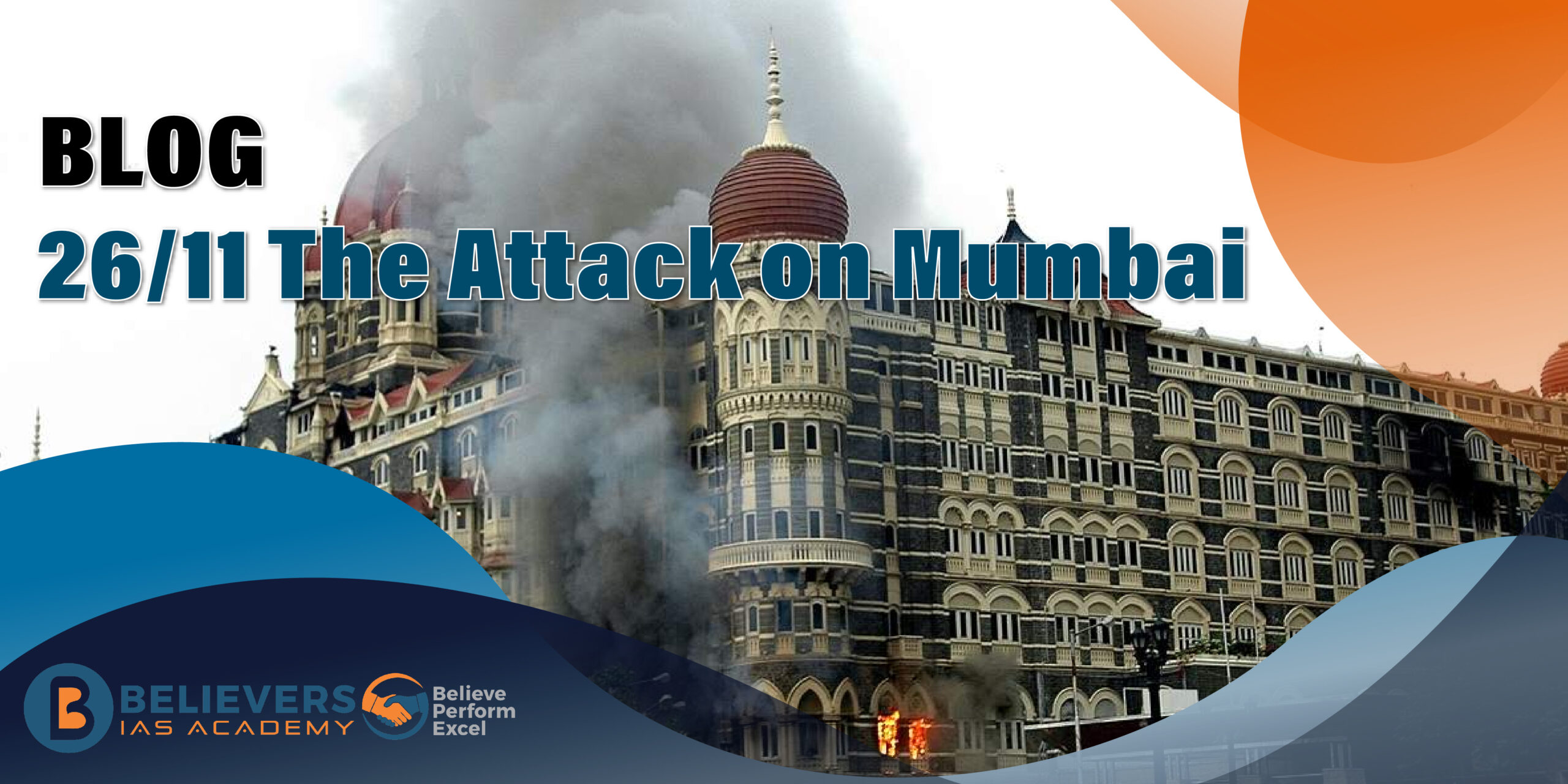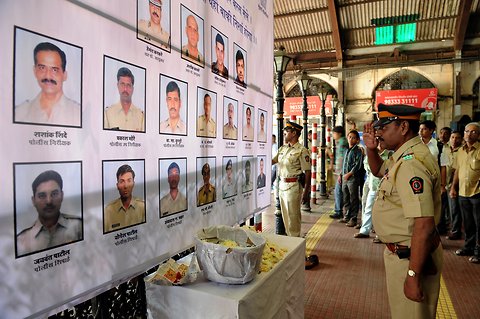Blog: The Attack on Mumbai
Date and Duration:
The attacks began on November 26, 2008, and they lasted for four days, until November 29, 2008.
Targeted areas:
The terrorists chose a number of venues in Mumbai as their targets, including opulent hotels, a well-liked café, a train station, and a Jewish community centre. The Oberoi Trident Hotel, Taj Mahal Palace Hotel, Chhatrapati Shivaji Terminus (CST) railway station, Leopold Café, Nariman House, and Cama Hospital were the primary targets.
Perpetrators:
Ten members of the terrorist group Lashkar-e-Taiba (LeT), which has its headquarters in Pakistan, were responsible for the attacks. LeT provided them with equipment and training in Pakistan. Only Ajmal Kasab, one of the ten terrorists, managed to escape the attack. In 2012, he was executed in the Yerwada prison. Hafiz Arshad alias Abdul Rehman Bada, Abdul Rahman Chhota, Javed alias Abu Ali, Fahadullah alias Abu Fahad, Ismail Khan alias Abu Ismail, Babar Imran alias Abu Akasha, Nasir alias Abu Umar, Nazir alias Abu Umer, and Shoaib alias Abu Soheb were the other nine assailants who perished during the assault.
Attacking Strategy and Casualties:
Using inflatable speedboats, the terrorists travelled from Karachi, Pakistan, to Mumbai by sea. They broke up into smaller groups and conducted coordinated assaults at various points throughout the city. They held innocent bystanders at gunpoint using the pandemonium and explosions.166 people were killed in the attacks, including 28 foreigners, and more than 300 people were injured. Hotel visitors, employees, police officers, and regular citizens were among the victims. In this operation, two NSG commandos and high-ranking police officers also perished.
Hostage situation:
Attackers grabbed hostages at the Taj Mahal Palace Hotel and the Oberoi Trident Hotel, which resulted in a protracted confrontation with security personnel. Before being released or killed during the operation, the hostages were held captive for a number of hours.
Response and counterterrorism operations:
In addition to other Indian security services, the Mumbai Police responded to the attacks. To defeat the attackers and free the captives, India’s National Security Guard (NSG), an elite counterterrorism squad, was sent in. All of the attackers were either killed or captured throughout the operation, which lasted for many days. This operation brought together members of the Rapid Action Force, Marine Commandos (MARCOS), National Security Guard (NSG), and Mumbai Police for the first time from an Indian perspective.
International Response:
Widespread international condemnation was expressed in response to the attacks. Nations from all around the world gave their support in the fight against terrorism and pledged their unity with India. Numerous nations provided India with support and assistance in a variety of ways, including intelligence sharing, forensic know-how, and logistical help. Israel, the United Kingdom, and other nations supported India’s security authorities in their investigation of the incident and fight against terrorism.China rejected an Indian and American proposal to list Lashkar-e-Taiba terrorist Sajid Mir as a global terrorist at the UN. Mir has his base in Pakistan. Sajid Mir is principally to blame for the Mumbai Attack.
Impact on India:
India’s security policy and counterterrorism initiatives were significantly impacted by the Mumbai attacks. It revealed flaws in the nation’s intelligence and security apparatus, which prompted a fresh emphasis on enhancing readiness and coordination between various agencies.
Diplomatic Implications:
Relations between India and Pakistan were strained as a result of the assaults. India charged Pakistan with giving the attackers support and a safe sanctuary. As the level of hostility between the two nations increased, the dialogue was put on hold.
Public outrage and memorial:
The attacks in India caused a great deal of public outcry and sparked large-scale anti-terrorist protests. To memorialise the victims, a memorial known as the 26/11 Mumbai Attacks Memorial was erected at the Taj Mahal Palace Hotel.





